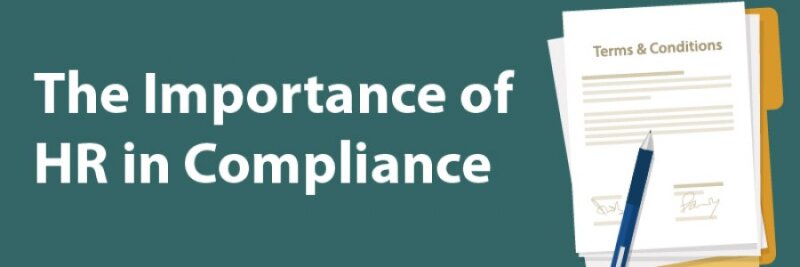Understanding and Handling Compliance in Human Resources
In any business environment, there are certain federal and state regulations, rules and standards that must be met and upheld. These are commonly referred to as compliances—and both employers and employees are responsible for adhering to them. Often, within a company, the bulk of the compliance work falls under the human resources (HR) umbrella.1 HR professionals are responsible for understanding which compliances must be met. They are also responsible for communicating those needs and developing ways for employees to meet them.
This is a huge, and crucial, responsibility within any organization. And it’s one that, if mishandled, could have extremely negative effects on a company, with the potential to cause significant legal trouble. Understanding compliance and what it requires of your company means having a grasp on the legal needs within a specific industry.
For HR professionals without a legal background, this can be a difficult task. In today’s technologically advanced business world, compliance laws are evolving as rapidly as other workplace innovations, and new job functions are being created alongside new tools for communication and for conducting business. All of these changes have the potential to bring with them new rules and regulations for HR to learn and implement.
In fact, one study revealed that more than half of all HR managers in small and mid-sized businesses expect to struggle to keep up with the changing HR compliance and employment laws moving forward.2
So, what can HR professionals do to better understand, stay up-to-date on and successfully adhere to compliance in the office?
Establish a Foundation
The first thing HR professionals can do to improve their compliance strategy is to establish a baseline understanding of the most common compliance legislation found in every U.S. workplace. While there are different rules and regulations for different work environments, there are also several general compliance laws that affect all industries. The following standards should be committed to memory by every working and aspiring HR professional:
- Equal Employment Opportunity Legislation: laws that prevent discrimination within the workplace
- Fair Labor Standards Act (FLSA): outlines the rules and standards concerning fair and appropriate minimum wages, overtime pay and other critical employment issues
- Family and Medical Leave Act (FMLA): gives eligible employees the right to take an extended leave from work due to certain medical or family issues without sacrificing health benefits or employment
These are just a few of the compliance laws in which all HR professionals should be well versed. The fact of the matter is that each organization will have its own unique set of compliances on top of these based on the company’s size and business. It’s critical to the success of the company that HR is up to date on and completely knowledgeable of all laws, rules and regulations that apply to their operations.
Put the Law on Your Side
While getting a job in human resources doesn’t necessarily require a legal background, understanding the law is a huge plus—especially when it comes to compliance. It’s clear that keeping up with changing HR rules and regulations is an essential part of every business, but to do so, HR professionals must first have a strong initial knowledge of the laws they’re keeping up on.
Programs like Tulane University’s online Master of Jurisprudence in Labor & Employment Law (MJ-LEL) can help those in HR, and those aspiring to be, develop the skills and strategies needed to understand business compliance. By being informed on the best practices from a legal standpoint, HR professionals can help their companies streamline effective strategies to educate employees on rules and regulations. They will also be better equipped to help their companies avoid costly compliance mistakes that could lead to lawsuits.
While compliance rules and regulations are constantly evolving, HR professionals are as well. Now, more than ever, there’s a demand for highly educated and capable professionals to help businesses navigate the ever-changing landscape. Those who seek a strong understanding of workplace regulation have the opportunity to benefit their employees and companies in significant ways.
Are you ready to increase your legal foundation? Discover the online Master of Jurisprudence in Labor & Employment Law (MJ-LEL) from Tulane University.
- Retrieved on February 28, 2018, from corporatecomplianceinsights.com/hr-function-compliance-role/
- Retrieved on February 28, 2018, from adp.com/tools-and-resources/adp-research-institute/insights/insight-item-detail.aspx?id=5451c537-c2e1-44ab-9a93-140e16958b07


